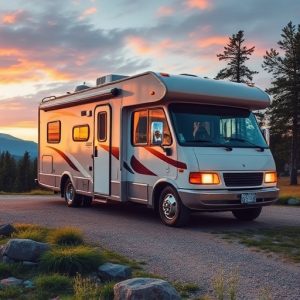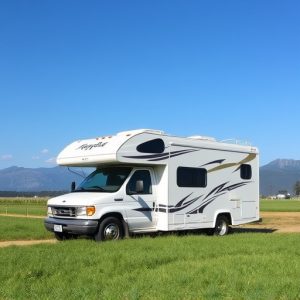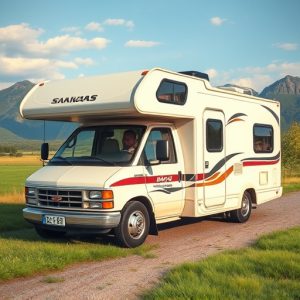Efficient RV Utility Management: Maximizing Performance for RV Travel
To ensure an efficient and sustainable RV travel experience, it's vital to implement energy man…….

To ensure an efficient and sustainable RV travel experience, it's vital to implement energy management practices such as installing solar panels for off-grid power, maintaining your batteries, transitioning to LED lighting, managing phantom loads with smart power strips, and closely monitoring battery usage. A comprehensive understanding of your RV's electrical components—including the inverter, converter, and batteries—is necessary for safe operation, along with ensuring compatibility of appliances with your RV's power system. For water management, regular checks on tank levels, pressure regulation, and maintenance are crucial to prevent depletion and plumbing issues. Insulating tanks and using a macerator pump can also aid in maintaining a clean supply and preventing odors or leaks. Climate control is another critical aspect of RV travel; investing in robust heating and cooling systems, coupled with proper insulation and shading, will keep you comfortable in various climates. Lastly, safe propane management involves understanding your RV's layout, monitoring gas levels, conserving usage, and maintaining appliances to prevent leaks. Always prioritize safety, use energy-efficient practices, and adhere to RV travel tips for a seamless and enjoyable journey.
Embarking on RV travel offers unparalleled freedom and adventure. To ensure your journey is seamless, mastering the management of your RV’s utilities and systems is key. This comprehensive guide covers essential strategies for optimal performance of your electrical systems, water management, climate control, and propane usage. By following our expert tips on energy efficiency, water conservation, and efficient gas management, you’ll enhance your RV experience, whether you’re boondocking in the wilderness or parked at a campground. Stay powered, stay hydrated, and stay comfortable with these RV travel tips tailored for the discerning nomad.
- Maximizing Energy Efficiency: Essential Strategies for RV Electrical Systems
- Mastering Water Management: Tips for RV Fresh and Waste Water Tanks
- Navigating Climate Control: Best Practices for Heating and Cooling in an RV
- Optimizing Your RV's Propane Usage: A Guide to Efficient Gas Management
Maximizing Energy Efficiency: Essential Strategies for RV Electrical Systems
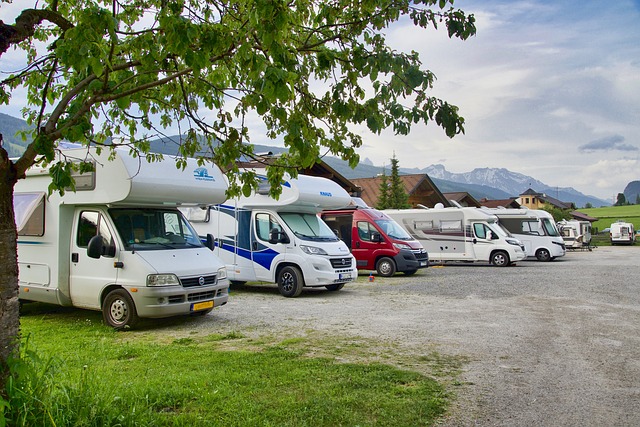
When embarking on RV travel, managing your electrical systems efficiently is key to a comfortable and cost-effective journey. To maximize energy efficiency in your RV, consider implementing strategic energy usage practices. Utilize solar panels to harness power from the sun, which can be particularly effective when camping off-grid. Ensure your batteries are properly maintained and charged to optimal capacity; this includes regular inspections and topping them up when necessary. Employ energy-efficient LED lighting throughout the RV, as they consume significantly less power than traditional bulbs. Additionally, unplug any electronics not in use and use energy-saving power strips that can easily be switched on and off, reducing phantom loads. Monitor your battery usage with a monitor that provides real-time data, so you can adjust your consumption accordingly. By adhering to these RV travel tips, you’ll enhance the performance of your electrical systems and conserve energy, making your RV trips more sustainable and enjoyable.
Furthermore, it’s advisable to understand how your RV’s electrical system works, including the inverter, converter, and battery components. Regularly check fuses and breakers for safety, and ensure all appliances are compatible with your RV’s power system. Inverters convert DC (direct current) from your batteries or solar panels into AC (alternating current), allowing you to use household appliances. Be mindful of the power needs of each device and prioritize essential usage during times when solar power collection is limited, such as at night or in overcast conditions. With these RV travel tips, you’ll maintain a balance between energy consumption and availability, ensuring that your RV’s electrical systems operate efficiently throughout your travels.
Mastering Water Management: Tips for RV Fresh and Waste Water Tanks

When embarking on an extended RV trip, mastery over your vehicle’s water management system is crucial for maintaining comfort and avoiding potential issues. To effectively manage the freshwater tank in your RV, it’s essential to understand its capacity and monitor usage to prevent depletion mid-journey. Regularly check the water pressure to ensure it doesn’t exceed the recommended PSI, as this can damage plumbing and appliances. Use RV Travel Tips such as installing a water pressure regulator to safeguard your system. Emptying the freshwater tank after each use or when only a quarter full will prevent sediment buildup and ensure clean, fresh water supply.
On the flip side, managing your RV’s wastewater tank is equally important. To avoid overfilling, never let it reach 75% capacity; this allows for proper function and prevents odors or leaks. Use RV Travel Tips like insulating the tank to maintain optimal temperatures for waste breakdown and consider installing a macerator pump for easier dumping into sewer systems. Emptying the tank at approved disposal sites is not just a courtesy but a legal requirement, ensuring environmental compliance and personal hygiene. Regularly inspect the seals and connections of both tanks to detect any leaks or potential problems early on, thus maintaining the integrity of your RV’s water management systems and enhancing your travel experience.
Navigating Climate Control: Best Practices for Heating and Cooling in an RV
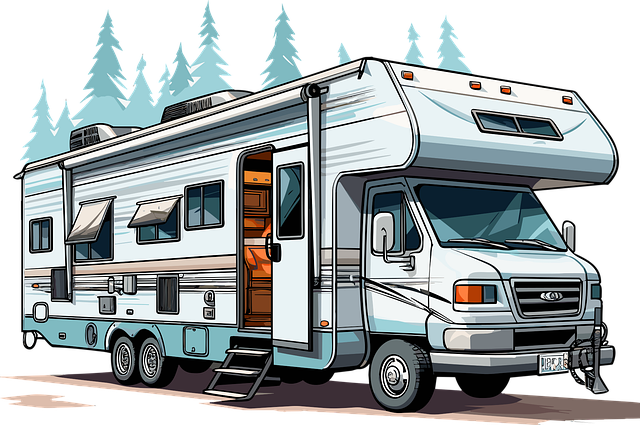
When embarking on RV travel, managing the climate within your vehicle is crucial for comfort and safety. Effective heating and cooling systems are essential for adapting to various climates and weather conditions you may encounter during your journey. To ensure optimal performance of these systems, consider the following best practices:
Firstly, understand the types of heating and cooling units available in RVs, such as ducted air conditioning and furnaces, roof-mounted air conditioners, portable space heaters, and propane heaters. Each system has its advantages and limitations; for instance, ducted systems provide a consistent temperature throughout the RV, while roof-mounted units are ideal for larger spaces with ample ventilation.
In the realm of heating, insulation plays a vital role in maintaining warmth. Utilize thermal curtains, weather stripping, and insulating window covers to prevent heat loss. Ensure your RV’s windows and doors are properly sealed, especially during cold nights. For cooling, prioritize shading your RV with awnings or solar screens during the day to mitigate the buildup of heat. Employ ceiling fans to circulate air and enhance the effectiveness of air conditioning units. Regular maintenance checks on both heating and cooling systems are necessary to prevent malfunctions or inefficiencies that could disrupt your travel comfort. By adhering to these RV travel tips, you can navigate climate control with ease, ensuring a cozy and pleasant environment no matter where your travels take you.
Optimizing Your RV's Propane Usage: A Guide to Efficient Gas Management
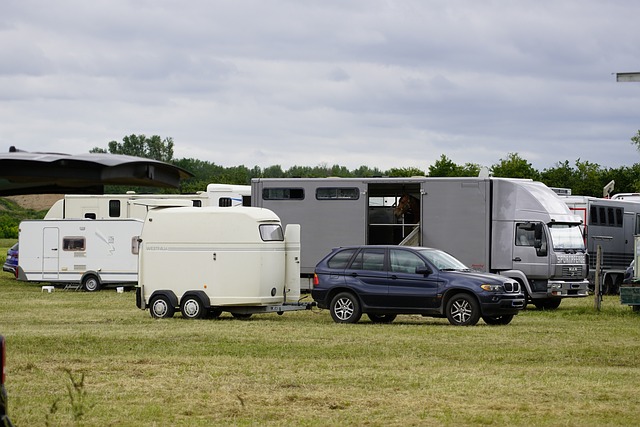
To maintain a comfortable living environment while on the road, it’s crucial to manage your RV’s propane usage efficiently. Proper management not only extends the life of your propane tanks but also ensures that you have a reliable energy source when you need it most. RV travel tips for optimizing propane use include understanding the layout of your RV’s gas system, regularly checking propane levels, and using appliances sparingly. For instance, when the outdoor temperature permits, opt to use fans or open windows instead of running the air conditioner on propane. Additionally, prioritize the use of propane for essential systems like the refrigerator and water heater, which typically consume more gas than other appliances. By adhering to RV travel tips that focus on propane conservation, you can prevent waste and ensure that your RV’s heating, cooking, and refrigeration systems are available when you need them. Regular maintenance of your propane-powered appliances, such as cleaning the burners and inspecting hoses for leaks, also contributes to efficient gas management. Implementing these strategies will help you make the most of your RV’s propane supply, enhancing your travel experience and safety. Always keep safety in mind by familiarizing yourself with the RV’s propane system and having a carbon monoxide detector to alert you of any potential gas leaks.
Managing the various utilities and systems within an RV is crucial for a comfortable and efficient travel experience. This article has outlined essential strategies for optimizing your RV’s electrical, water, climate control, and propane systems to enhance energy efficiency and resource management. By implementing the tips provided for each system, RVers can ensure their adventures are smooth, sustainable, and enjoyable. With these RV travel tips in hand, you’re now equipped to handle the demands of RV living with ease, no matter where your travels take you. Safe and savvy journeys!
